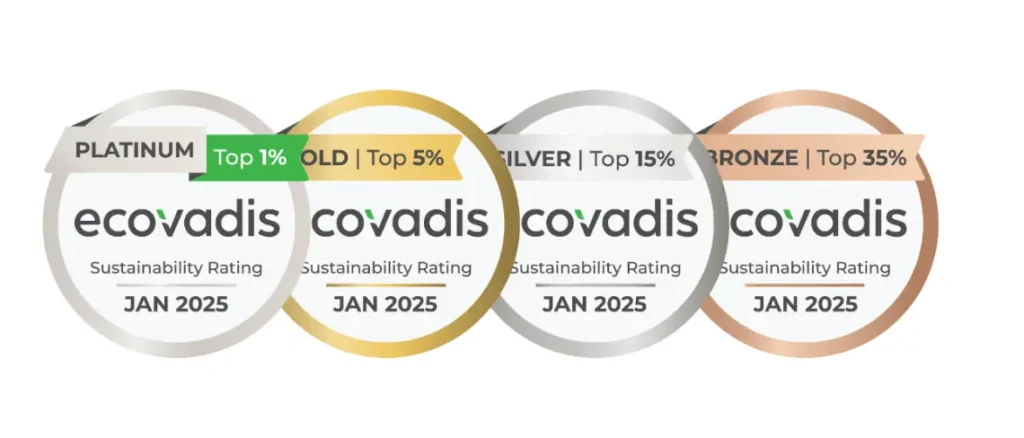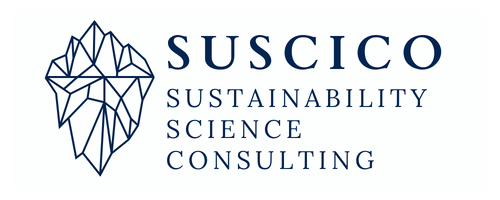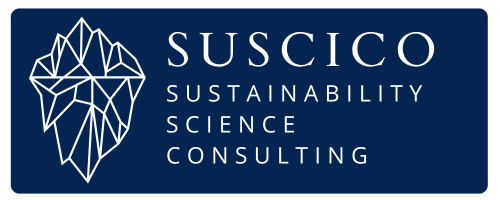Surviving the ESG Rating Jungle
- 22/09/2025
- Posted by: Ildar Usmanov
- Category: ESG Rating

Introduction: Why ESG Ratings Feel Like a Maze
Why does one buyer ask for EcoVadis, another demand SMETA, while investors point to FTSE4Good? Shouldn’t an ESG rating be one clear standard?
For most Malaysian SMEs and PLCs, the reality is very different. Instead of a single benchmark, companies face a patchwork of ESG systems. Each comes with its own questionnaires, audits, and scoring logic. The result is familiar: duplicated documents, rising costs, and valuable time lost to compliance rather than business growth.
Think of it like running a restaurant with three inspectors at the door. The Michelin Guide, a franchise safety inspector, and the national food authority all check different things. None of them talk to each other, but each one can decide whether customers—or investors—trust you.
To survive, you need to understand who is behind these ESG rating systems, how much credibility they carry, and how they affect your ability to win contracts and attract capital.
Supply Chain & Buyer Systems: Understanding ESG Ratings
Not all ESG rating systems used by buyers carry the same weight. Some rely on independent audits, while others are based only on documents or data uploads. Knowing the difference is essential for Malaysian SMEs and PLCs that want to stay competitive in local and global supply chains.
Audit-Based Systems: Highest Credibility
These systems are the most demanding but also the most trusted. Independent auditors visit your site, check documents, interview workers, and review actual practices. The outcome is proof—not just paperwork—that your operations meet international expectations.
- SA8000 → A formal social accountability certification similar to ISO. It requires multi-stage audits and ongoing surveillance. Earning it shows your company protects worker rights, health, and safety through a management system.
- SMETA / Sedex → The most widely used ethical trade audit. Once completed, the audit report can be shared with multiple buyers through Sedex, which reduces the need for repeated inspections.
- amfori BSCI → A graded social compliance audit widely required by European retailers. Instead of a pass/fail, companies receive a grade (A–D) and clear guidance for corrective actions.
Value: Passing these audits builds strong credibility with global buyers. For Malaysian suppliers, they can unlock access to international markets and long-term contracts.
Ratings & Scorecards: Medium Credibility
Here, no auditor comes to your site. Instead, you submit documents, policies, and supporting evidence for review by analysts who benchmark you against peers.
- EcoVadis → The most recognized ESG rating system in global supply chains. It scores companies from 0–100 and awards a medal level—Bronze, Silver, Gold, or Platinum. Credibility comes from its structured methodology and comparison against over 2,500 international standards.
Value: Buyers use EcoVadis because it offers a standardized way to compare hundreds of suppliers quickly. For companies, improving your ESG rating from Bronze to Silver or higher is often key to staying competitive in tenders and renewals.
Want to move up the medal scale? SuSciCo has guided Malaysian SMEs through EcoVadis submissions and helped them improve their ESG ratings.
Platforms & Data Hubs: Lower Credibility
These systems do not provide independent audits or formal ESG ratings. Instead, they serve as digital platforms where suppliers upload ESG data to share with buyers.
- Worldfavor → Focuses on supplier due diligence and ESG risk mapping. It highlights potential risks but credibility depends on the quality of documents provided.
- Position Green → A broader ESG management system. It includes supply chain data collection, reporting dashboards, and even carbon accounting tools.
Value: These platforms are efficient for data collection and transparency. However, without attaching audits or certifications, they rely heavily on self-declared information. Buyers see them as useful tools, but they typically look for verified audits or established ESG rating systems to confirm credibility.
Platforms can be powerful when used correctly. SuSciCo helps you integrate independent audits and certifications into Worldfavor and Position Green, so your data carries real weight with buyers.
National ESG Credentials: SIRIM and MyHIJAU
For Malaysian companies, building credibility often starts with national certifications. These marks are not the same as investor indices or global supply chain audits, but they create a strong foundation for improving your overall ESG rating.
SIRIM Certification
SIRIM is Malaysia’s national standards and certification body. Think of it as the government’s “official inspector” for companies and products.
- It issues marks for product safety and quality, often needed for domestic market entry.
- It certifies companies against management systems such as ISO 9001, ISO 14001, and the SIRIM 55 ESG framework.
- Unlike private platforms, SIRIM certification is state-recognized, making it a trusted baseline for ESG credibility.
Why it matters for your ESG rating:
Although SIRIM is not a global ESG rating or supply chain audit, it shows buyers and investors that your company has met a nationally endorsed baseline of ESG performance. This recognition can support your credibility when you engage with systems like EcoVadis, SMETA, or FTSE4Good.
MyHIJAU Mark
MyHIJAU is Malaysia’s official green recognition scheme, managed by the Malaysian Green Technology and Climate Change Corporation (MGTC). It certifies that products or services meet recognized environmental standards.
- Products with the MyHIJAU Mark are listed in the national directory, making them eligible for Government Green Procurement (GGP).
- It consolidates other certifications, such as SIRIM Eco-Labelling or Global Ecolabelling Network marks, into one trusted label.
- Companies with MyHIJAU products can also access green incentives, including tax allowances for sustainable investments.
Why it matters for your ESG rating:
MyHIJAU does not provide a corporate-level ESG rating, but it adds credibility to your environmental performance. For product-based companies, especially manufacturers, having the MyHIJAU Mark strengthens market access, supports government contracts, and complements international ESG rating systems.
Building National Credibility
For Malaysian SMEs and PLCs, SIRIM and MyHIJAU are more than compliance tools. They are foundational credentials that improve trust locally and create a springboard for stronger recognition in global ESG rating systems.
SuSciCo helps companies prepare the systems, documentation, and applications needed to secure SIRIM certification and the MyHIJAU Mark—so your ESG credibility is strong at home and abroad.

Investor-Facing ESG Ratings
Supply chain audits and certifications focus on individual sites or products. Investor systems, however, evaluate the entire company through the lens of an ESG rating. Their main audience is not buyers but investors who need to know whether your company is sustainable, well-governed, and a safe choice for capital.
- FTSE4Good Bursa Malaysia (F4GBM) → A stock index that tracks listed companies with strong ESG practices. Inclusion signals that your ESG rating meets international standards for responsible investment.
- MSCI ESG Ratings → One of the most influential global systems. Companies are rated from AAA (leader) to CCC (laggard). A high MSCI ESG rating can increase access to global funds.
- S&P Global ESG Scores (CSA) → Based on the Corporate Sustainability Assessment, these scores feed into the Dow Jones Sustainability Index (DJSI), a widely recognized benchmark for sustainable performance.
- ISS ESG Corporate Rating → Used by institutional investors to guide proxy voting and capital allocation. A strong ESG rating here can influence both shareholder trust and market perception.
- Sustainalytics → Provides ESG risk ratings that measure unmanaged sustainability risks and their potential financial impact. Investors use this to integrate ESG into portfolio management.
Why it matters:
For public-listed companies in Malaysia—or those preparing for IPO—these ESG ratings directly affect share price, investor confidence, and access to capital. Unlike supply chain systems, they are less about compliance and more about positioning your company as an ESG leader in the capital markets.
Ready to strengthen your market reputation? SuSciCo helps Malaysian PLCs build disclosures and strategies that improve credibility with investors and support stronger ESG ratings.
The Real Problem: Box-Ticking Overload
If you feel overwhelmed by ESG paperwork, you are not alone. Many Malaysian SMEs and PLCs face the same cycle: completing a BSCI audit, uploading data to Position Green, preparing documents for EcoVadis, and responding to a buyer’s SMETA request—all while trying to keep daily operations on track.
The reality is that much of this effort is not about real sustainability impact. It is about meeting different checklists that buyers, auditors, and investors use to verify an ESG rating.
The result is duplication, fatigue, and unnecessary costs:
- The same policy rewritten several times to match different templates.
- Corrective actions that vary only slightly between auditors.
- Platforms requesting self-declared data while buyers still demand independent audits.
Instead of a single universal framework, companies must navigate a patchwork of ESG evaluations. Each system has its own rules, none of them align fully, yet all of them shape how credible your ESG rating appears to the outside world.
At SuSciCo, we help you break this cycle. Our team builds one strong evidence base that works across multiple ESG rating systems, saving time, reducing costs, and restoring focus on real sustainability.

How SuSciCo Helps You Survive
At SuSciCo, we understand that companies rarely struggle because of poor effort. They struggle because every buyer, auditor, and investor uses a different system to judge their ESG rating. Our role is to simplify this complexity and prepare you to respond with confidence.
We do not issue certifications or ratings—that responsibility lies with accredited auditors and rating agencies. What we do is ensure you are ready. Your evidence is structured, your gaps are closed, and your disclosures are aligned with the expectations of each system.
Here is how we support you:
- Unified evidence preparation → We help you build a core set of policies, procedures, and records that can be adapted across multiple ESG rating systems, including EcoVadis, SMETA, and BSCI.
- Audit readiness support → Through gap analyses, mock audits, and corrective action planning, we prepare you for third-party inspections such as SMETA, BSCI, or SA8000.
- EcoVadis score improvement → We guide you in strengthening documentation, aligning with EcoVadis methodology, and closing evidence gaps to improve your ESG rating over time.
- Disclosure alignment for investors → We connect your sustainability reporting with frameworks used by FTSE4Good, MSCI, and S&P Global. This ensures your ESG rating reflects your strengths in the eyes of investors and capital markets.
Don’t waste resources on trial and error. Partner with a team that has guided Malaysian SMEs through EcoVadis, supplier audits, and SIRIM preparation—and get ready for the ESG ratings that matter most to your business.

From Survival to Strategy
Navigating the ESG jungle isn’t just about survival. Yes, today you may feel like you’re juggling audits, platforms, and disclosure requests just to keep buyers and investors satisfied. But with the right approach, these same systems can become a growth strategy.
A stronger ESG rating doesn’t only reduce compliance headaches—it builds trust with international buyers, opens doors to new markets, and signals credibility to investors. What feels like box-ticking today can become a competitive advantage tomorrow.
At SuSciCo, our mission is simple: to help Malaysian SMEs and PLCs turn ESG requirements from a burden into an opportunity. With the right evidence, preparation, and alignment, you don’t just survive the ESG jungle—you thrive in it.
Contact SuSciCo to map your ESG survival path today.
SuSciCo helps in implementing Sustainability Practices
At SuSciCo, we help companies implement a Customer-Centric Sustainability approach by integrating ESG principles into their strategies. Our services include GHG management, sustainability reporting (GRI, IFRS, Bursa Malaysia), supply chain optimization, and ISO 14001 EMS development. We offer PCF and LCA assessments, sustainable procurement strategies, and waste management solutions to align products and operations with customer expectations. Through tailored ESG training and stakeholder engagement, we empower businesses to reduce environmental impacts, foster innovation, and build trust for sustainable growth.



